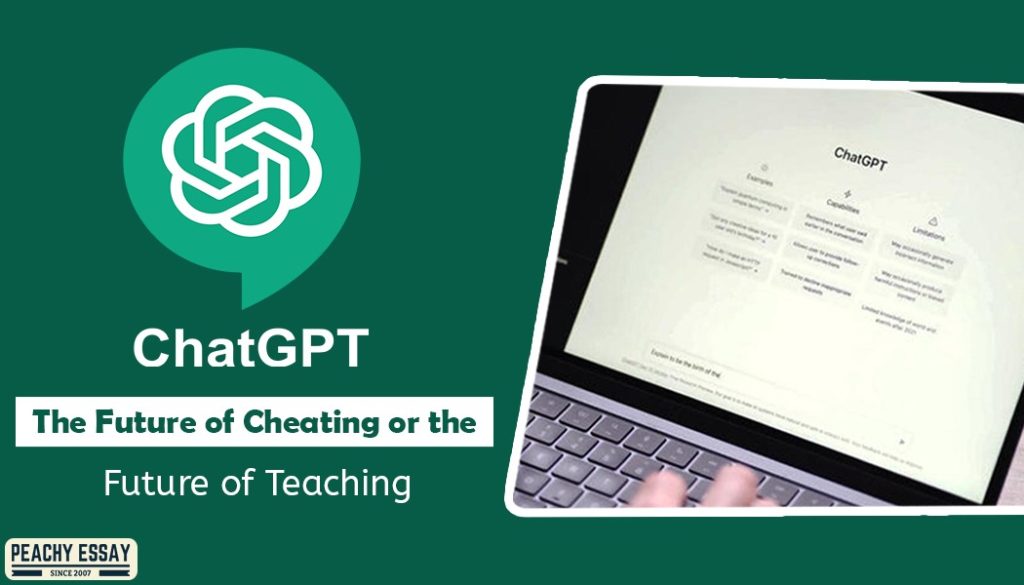In the past year, AI technologies such as ChatGPT have revolutionized many fields due to their ability to automate or aid many tasks. However, educators and teachers are concerned that ChatGPT can be used as a tool for cheating.
If you’re considering using ChatGPT for your classwork, you’re putting yourself at risk of failing your classes or being expelled. Read on to learn about why using ChatGPT in your academic endeavors is ill-advised.
Is Chatgtp Cheating?
Most everyone is aware of the definition of plagiarism: passing off work or ideas that are stolen from someone else. By that definition, using ChatGPT to write your work qualifies as cheating, since the content is not being created by you, but by an AI.
Universities and colleges are well-aware that students are trying to skirt the rules by using AI systems to produce essays. Because of this, many have now explicitly banned the use of ChatGPT and AI as a form of plagiarism and have begun expelling students caught using it.
The numbers are sobering: in 2023 alone, over 25 universities in the U.S. have expelled students for submitting AI-generated work. Is it really worth risking getting caught just to avoid having to spend a few hours writing an essay?
Can Turnitin Detect ChatGPT?
While universities and colleges have begun deploying software specifically designed to detect AI-written essays, the reality is that existing plagiarism detection software such as Turnitin can already identify ChatGPT-authored papers with startling accuracy.
Because ChatGPT’s data set consists of text acquired from the Internet, it often copies entire blocks of text from online sources in its “original” essays. This means that ChatGPT-created papers are frequently flagged as plagiarized by Turnitin because they lift entire quotes from websites without attribution.
Even if your paper isn’t specifically identified as AI-written, Turnitin and other plagiarism detection programs are universally used by colleges and professors, meaning if you submit a ChatGPT-authored paper, you are very likely to get in trouble for plagiarism even if you’ve never seen the plagiarized sources in question.
Not only that, Turnitin and other plagiarism software programs are working on increasing their ability to specifically detect AI-written content, decreasing the already-slim chances students have of sneaking ChatGPT-authored essays past their professors.
Can Universities Detect ChatGPT?
While some students may have been able to slip AI-written essays past their professors when ChatGPT first launched, universities are now hip to what’s going on and have adapted. AI-written content can be easily identified by software and careful observation.
ChatGPT-authored essays are written in a repetitive, generic style due to the fact that they are cobbled together from information taken from the Internet. They lack the critical thinking or in-depth analysis that a human is capable of and can be easily flagged as a result.
Additionally, ChatGPT is known for “hallucinations,” a phenomenon where it reports false information as truthful, even if it has access to the right answer. Many students who have been expelled for submitting AI-written work were caught specifically because their essays contained easily-verifiable falsehoods.
Ultimately, using ChatGPT for your college work is not a good idea. Many students have already been caught doing it and universities are only going to get more vigilant in the future.
Getting Help with Your College Coursework
If ChatGPT isn’t an option when it comes to your college essays, then what can you do? One solid option is to use a ghostwriter.
For the past couple of decades, college students have relied on ghostwriters to help them with their assignments. Ghostwriters offer a number of key advantages that ChatGPT and other AI programs simply can’t provide.
For one, ghostwriters are experts in their given subjects. There are ghostwriters who can help you with English, history, mathematics, science, philosophy, and just about any other subjects, with degrees in each of those fields. Their in-depth knowledge far outstrips that of an AI relying on content scraped from the Internet.
Because ghostwriters are experts, they can use their existing knowledge combined with their research abilities to craft convincing, well-argued thesis statements and quality essays that will impress anyone. No AI is capable of doing this.
Not only that, ghostwritten essays are 100 percent original. This means that they aren’t plagiarized and will not be flagged by Turnitin or other similar software programs. They also obviously won’t be flagged by AI detection software.
Finally, ghostwriters are excellent at working under tight deadlines. Depending on the quality of the ghostwriter, the length of your paper, and the type of subject, you can have an essay written in mere hours.
The advantages of a ghostwriter over ChatGPT are clear. You get expert guidance on any topic you desire, rapid turnaround, and an essay that won’t be flagged by AI detection systems or plagiarism software.
ChatGPT and Cheating: The Bottom Line
The simple reality is that relying on ChatGPT to do your homework for you is an extremely bad idea. Universities are now aware that students are using ChatGPT as a cheating tool and have taken measures to detect AI-written essays. Existing plagiarism detection programs like Turnitin are also frighteningly good at identifying ChatGPT-authored work.
If you submit a ChatGPT-written essay, you are very likely to be caught, and the consequences for plagiarism range from failing grades to expulsion from your university. That’s not worth the risk.
If you’re looking for help with your college essays, the safest and best option is to hire a ghostwriter instead. Ghostwriters provide you with the expert help you need to pass your courses along with the peace of mind that your work will be submitted on time as well as pass plagiarism detection checks.







